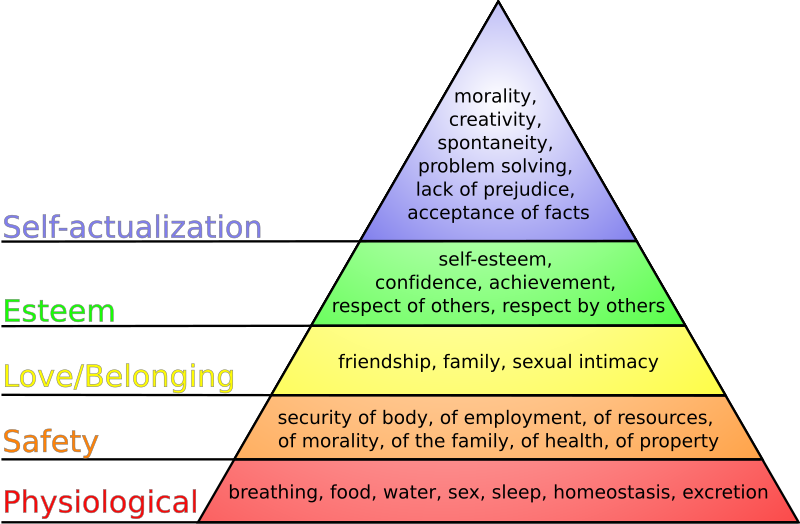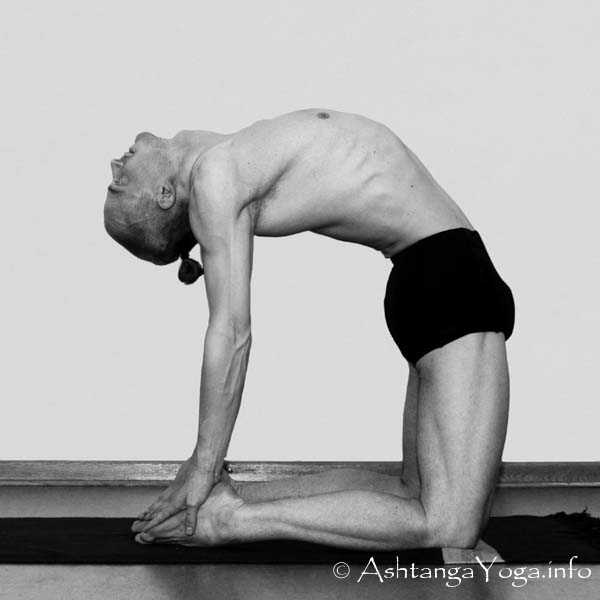Lao Tzu.
A sage and the legendary father of Taoism.
5,000 characters.
Bits from his piece, the Tao Te Ching, began to break into my 'mosphere in '05, at least to a degree where I was actually aware of it.
Very gradually, it came.
Here and there verses would drop as quotes held close to the chest by friends, others.
Only recently did I take the initiative to go to the source; get the low-down straight from the horse's mouth, so to speak.
The version of this ancient Chinese text that made its way to me is one of many, many translations. Enjoyably, there is a paragraph or two of commentary after each verse; a sort-of sieve for the present-day pupil that nicely unpacks and re-stacks the souvenirs left after the trip of reading.
... ... ...
Verse 2
Relativity
We know beauty because there is ugly.
We know good because there is evil.
Being and not being,
having and not having,
create each other.
Difficult and easy,
long and short,
high and low,
define each other,
just as before and after follow each other.
The dialectic of sound
gives voice to music,
always transforming "is" from "was"
as the ancestors of "to be".
The wise teach without telling,
allow without commanding,
have without possessing,
care without claiming.
In this way we harvest eternal importance
because we never announce it.
Verse 2 Commentary
"This verse celebrates the relativity of reality, thereby aligning itself with modern science, especially Einstein's theory of relativity. The corollary is a rejection of fundamentalism and absolutism. Verse 2 is a poetic reminder that one of our 21st century requisites is to transcend all superstitions. To believe that our world today is just as God created it and has never ever changed, nor will ever change, shuts the door to transformation. Such a premise locks us into the inequalities of the past that were predicated on a condition of scarcity and a division between a minority who can fulfill their needs and a majority who cannot. 21st century technology makes have and have-not inequities, as well as their rationales, anachronistic.
Lao Tzu’s theory of relativity suggests new paradigms of consciousness. He implies that when there will be no gluttony, there will be no starvation, when there will be no rich, there will be no poor. That is self-evident. However, what does it mean to say that when there will be no ugly, there will be no beauty, and that when there will be no evil, there will be no good?
It means that beauty and good will no longer be expressed as compensatory for the ugly and the evil in our life experience. It means that we will not any longer have to express beauty separated from life as art, nor good separated from life as a spiritual expression. It is possible that 21st century life will rediscover the harmony between our environment and us, and the harmony among each other, and within us.
It is this harmony that will be good and beautiful only as seen from our current perspective. But from a future perspective, good and beautiful as alienated compensations will not exist because evil and ugly will not exist. What we today call good and beautiful will simply permeate the character of life.
If beauty will no longer be separable from life, then we may expect that, eventually, there will no longer be concert halls and museums, since the music and art of life will be inherent in all the sounds, movements and patterns of ordinary life, and will be expressed by every one of us, not just a specialist who creates beauty for us such as the professional musician and artist. We can imagine that some day every mode of communication might be spontaneously musical and poetic, every movement might be a dance, every object we create – a visual delight, all expressing the integral and actualizing character of life.
Similarly, in the distant future, we may not have need for churches, temples and mosques since life itself may become spiritual in all its forms, activities and expressions.
In such a world of the future, the teacher and the student might be so in tune with each other that they will be able to teach without telling. Each of us may become so in tune with every other person that we may spontaneously allow without commanding. To the extent that out lives issue from material and spiritual abundance, we will be free to have without possessing and care without claiming, and because in this new condition, we can expect to give and receive love freely, our egos will no longer be starved. In this way we [will] harvest eternal importance because we [will] never [need to] announce it."
Verse 40
All Is Paradox
The movement of the Great Integrity
is infinite,
yet its character is passive.
Being defines every form of life,
yet all originate in,
and return to, non-being.
Verse 41
Observing and Nourishing Paradox
When most people
hear about the Great Integrity,
they waiver between belief and disbelief.
When wise people
hear about the Great Integrity,
they diligently follow its path.
When ignorant people hear about it,
they laugh out loud!
By this very laughter,
we know its authenticity.
It is said that -
enlightenment appears dark,
the progressive way appears retrograde,
the smooth way appears jagged,
the highest peak of revelation
appears empty like a valley,
the cleanest appears to be soiled,
the greatest abundance
appears insufficient,
the most enduring inner strength
appears like weakness,
and creativity appears imitative.
Great talents mature slowly.
Great sounds are silent.
Great forms look shapeless.
Transcendent squareness has no corners.
The Great Integrity hides behind all forms,
stubbornly nourishing the paradoxes
that can enlighten us.
Verse 41 Commentary
"One of the important differentiations between the thought structures of Lao Tzu and of conventional science is the metaphoric-paradoxic character of the former and the objective and logical character of the latter. To Lao Tzu, contradictions often reveal a deep truth. To modern science, contradiction indicate an error. This verse is saturated with the paradoxes that surface when one experiences life through the Great Integrity, that is through our intuitive holistic consciousness.
It is the left cerebral hemisphere that formulates logical alienated thinking, which requires the modern conventional scientist to seperate himself from that which he is investigating.
In contrast, the Great Integrity is a holistic consciousness, which predominantly activated the right cerebral hemisphere and is both phylogenetically and ontogenetically an earler mode of perception. Right-brain dominance was characteristic of the first few million years that hominids wandered through our planet. It is also the only form of perception of every one of us during our infancy and the dominant from during our prelogical early childhood years.
According to Lao Tzu and to many of us who are exploring a more appropriate consciousness for the twenty-first century, a new Great Integrity will transcend out present objective consciousness. My view of evolutionary transformation proposes that this new Great Integrity will not be a return to right hemispheric dominance, but to a new left-right hemispheric merger in which both our thoughts and feelings, our objective apperceptions and subjective perceptions, will function as a higher level of integral human exchange. Such a development assumes a new mode of communication that will be objective and scientific (like language) as well as subjective and feelingful (like music), but without the duality that now characterizes their relationship. The new music-language might also permit the communication of simultaneous multiplicities, especially involving the processes of transformation. Until now, the limitations inherent in the linearity of our thinking and of our languages have required us to communicate the complexities of our experiences by analyzing and presenting them in sequential fragments like the frame-by-frame photographs in a cinema."
Verse 42
The Principles of Transformation
The Great Integrity expresses one.
One manifests as two.
Two is transformed into three.
And three generates all the myriad entities of the universe.
Every entity always returns to yin
after engaging yang.
The fusion of these two opposites
births the Vital Energy
that sustains the harmony of life.
But for most people,
this harmony is decimated
by inheriting a condition
of, misery and victimization.
Politicians cleverly pretend
that they too originate
from the toxic soil of this misery,
even while designing the very laws
that legitimate victimization.
But watch out -
those who hoard oversufficiency
will be diminished!
And those who are diminished
will become bountiful!
These commonly known truths
that common people
teach each other,
are also my truths.
As you sow,
so shall you reap.
Such is the heart of my teaching
in a world forced to live heartlessly.
Verse 64
Timing
It is easy to hold what is still stable.
It is easy to mold what is not yet formed.
It is easy to shatter what is still fragile.
It is easy to scatter
what is yet light and small.
Therefore, act now rather than wait.
Get things done before it's too late.
A huge tree
that you can't get your arms around
grows from a tiny seedling birth.
A tower of nine stories high
rises from a small heap of earth.
A thousand mile journey
begins with one step.
This is an ancient tale.
Those who procrastinate,
or act prematurely, fail.
Those who interfere in processes
disrupt them.
Those who hold tightly to possessions
lose everything.
Wise people succeed
because they never force an outcome.
They never suffer a loss
because they are not attached to anything.
Some succeed in gathering assets.
But when the stakes begin to sail,
and greed crashes
through all cautionary boundaries,
failures unmercifully prevail.
Wise people don't accumulate possessions,
or teach anyone to amass things.
They devote themselves
to the natural rhythms
that the Great Integrity brings.
Verse 78
Appearance and Reality
Nothing in the world
is softer and weaker than water.
Yet there is nothing better
for subduing all that is harder and stronger.
Everyone observes
how weak overcomes strong,
how gentleness overcomes rigidity.
Yet, this principle is seldom
put into conscious practice.
Though some may say it is useless
to accept responsibility
for the calamities and toxicities
of the world,
taking such responsiblity
might put us on the road
to the Great Integrity.
Just remember that truth
often masquerades as falsity,
and falsity as truth.
Verse 19
The Paradoxes of Returning to the Great Integrity
Banish the intellectual!
Discard knowledge!
We will all benefit a hundredfold!
Eliminate all institutions
of charity and justice!
We can then return
to our natural love for each other.
Let everyone be released
from our addictions
to shrewdness and profit!
Then, thievery will disappear!
These three negate the Great Integrity.
But to negate these negations
is insufficient.
Three affirmations are also necessary.
The first is to embrace
simplicity and integrity.
The second is to consume
only the needs of our body and soul.
The third is to allow our love and concern
for others to define our essentiality.





































